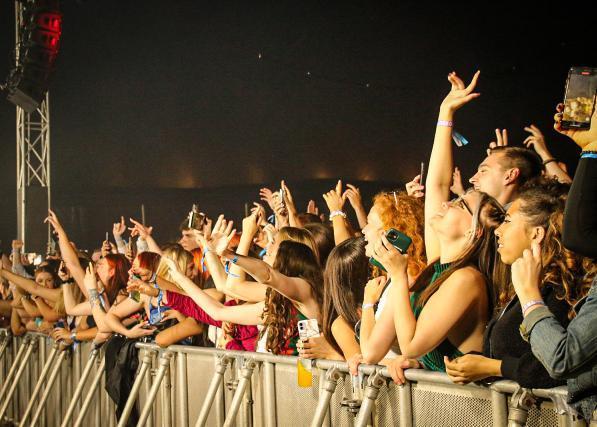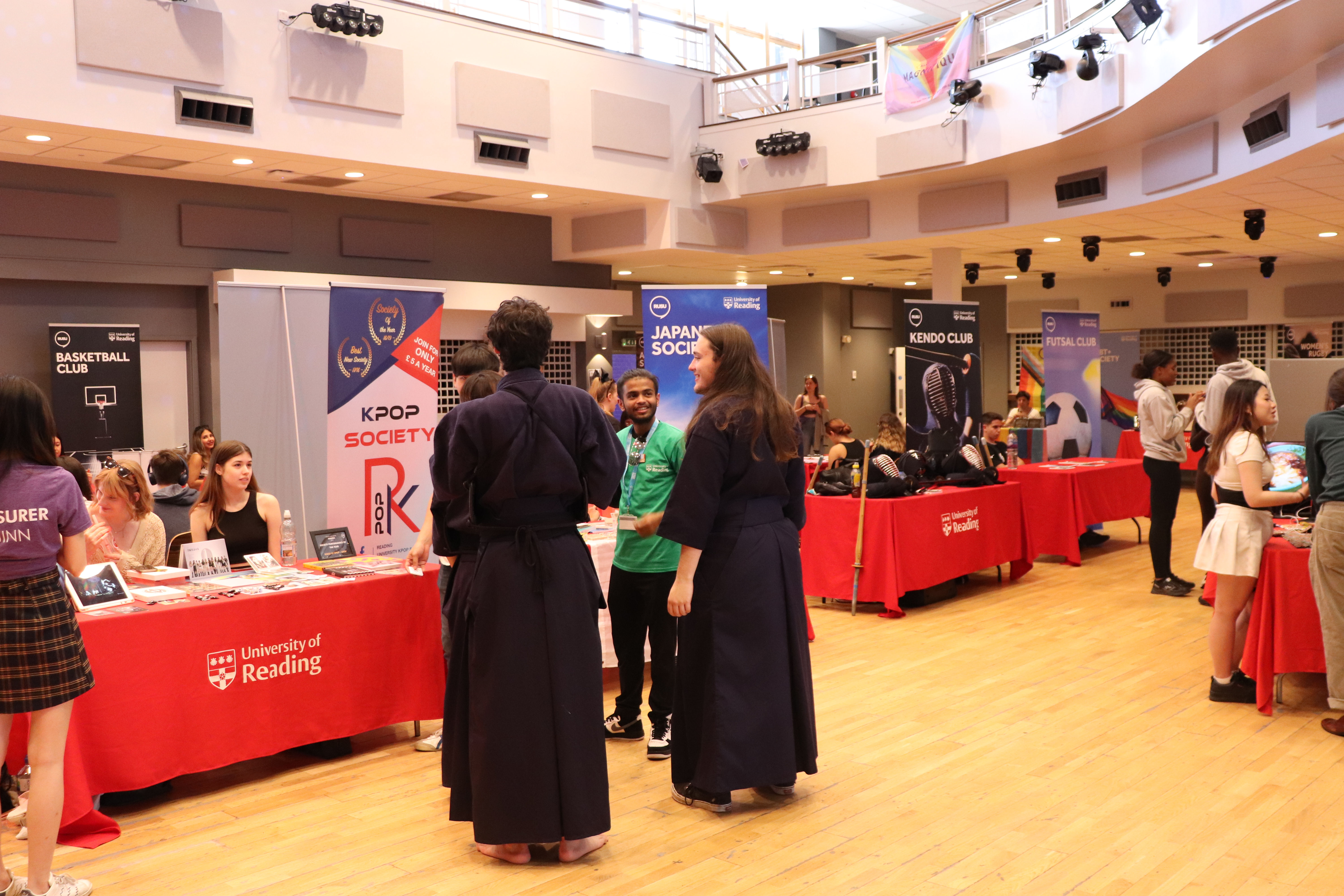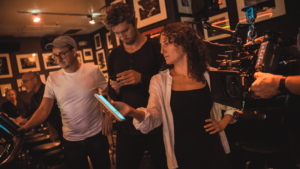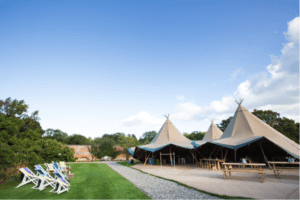As student event organisers and promoters seek to grow attendance in the coming academic year, we spoke to Jon Szreider, commercial operations manager at Reading University Students Union, about the emerging trends and marketing tactics shaping the team’s strategy.

Last year, 2.66 million students were enrolled in higher education institutions in the UK and, with admissions services seeing record numbers of applications for the 2022/23 academic year, event organisers at campuses, colleges and universities have the opportunity to target more potential attendees than ever.
But treating the student body as a guaranteed audience is one of the biggest mistakes an event organiser can make, says Jon, who joined Reading University Students Union (RUSU) as a member of student staff in 2008 before graduating and taking a full-time position within the team. Since then, he’s looked after the box office and ticketing and, for the past six years, has been overseeing commercial operations across RUSU’s multiple venues, including a nightclub, bar, kitchen and merchandise store.
“Transparency is key when promoting events and selling tickets,” says Jon. “That means being honest about an event and being willing to admit when something isn’t working.” With students signing up for three- or four-year courses, you must build trust and establish loyalty from the outset. “Sometimes you see event promoters creating a scarcity of tickets, but if attendees find there are only 100 people when it’s advertised there’ll be a couple of 1000, they’ll never return.”
Jon says if you put on an event and it doesn’t land, don’t keep pushing it. “If students aren’t interested, you need to go back to the drawing board and find a new approach. It’s better in the long run.”
Asked for essential advice, Jon shares six insights and observations that will inform his approach throughout the coming year.
1. Respond to the cost of living crisis
Organising a successful student event means being realistic about the challenges your attendees might face – and for many, the cost of living crisis is likely to present a significant barrier to purchasing a ticket. Jon says this has prompted the RUSU team to deviate from their tried-and-tested approach to Freshers Week sales and try something completely different.
“In response to the cost of living crisis affecting students, we’ve made the wristbands free. We worked with Eventbrite to provide an option on the platform that allows students to register for their wristband and obtain a 50% discount code that they can use five times across nine events. So they can craft and create their own Freshers Week that suits them. There’s no pressure to go out every night. We want it to be as all-encompassing and as customisable as possible, so they choose what suits them.”
Key takeaway: Getting to know your audience means being able to tailor events – and ticket prices – to their needs

2. Tap into the premiumisation trend
Students might be working with tighter budgets, but they still want to enjoy premium experiences. “We’re certainly seeing premiumisation play a role in students’ spending habits. Instead of buying a single shot of cheap vodka, they’d rather upgrade to a Cîroc or a Grey Goose.”
Attendee figures and venue takings can reveal macro and micro trends that creators should pay attention to when planning and promoting their events. As Jon has discovered: “Today’s students spend a similar amount as in previous years but across fewer visits. Rather than going out two or three times a week, they might go out one night a week but spend the same amount in that single visit.”
Key takeaway: Dive into any data you can collect to help you better understand how students interact with your event spaces. Why do they buy a ticket? Where do they spend money? What experiences (however small) do they privilege?
3. Create safe social spaces
“We want to instil confidence in our students, so we have lots of security measures in place to ensure they are looked after,” says Jon. “That includes safe places where they can wait for a taxi and welfare spaces if they need some time out during an event.”
In meeting students’ needs, Jon says the RUSU now hosts a greater diversity of events than ever before. “Making sure there’s something that appeals to different groups is key. Like the roller disco event or mocktail lounge in our Freshers Week package, we never would have done that five years ago. Or our quiz and karaoke night on Thursdays, where people are welcome to come for one or the other, but often end up enjoying both. We want everyone to see there is something for them.”
Acknowledging each others’ achievements within a safe and supportive space is another part of RUSU’s mission. “I love the celebratory events – like our end-of-year Graduation Ball – and recognition evenings for members of our societies and sports teams.”
Key takeaway: Build community by finding ways to cater for everybody.

4. Put your customers in control
“One of RUSU’s strategic goals is to be as student-led as possible – this means getting student input and giving students development opportunities,” Jon says. And because the student body is such a source of inspiration, the team gather feedback whenever it can.
“The RUSU website has a button where students can suggest an event and we regularly encourage students to share ideas via our socials. We have an electronic music society that DJs at our events and suggests what they want to do. We also use our team of 90-100 student staff as a sounding board. We ask: ‘What’s gone well?’, ‘What are we missing?’ and ‘What do you see your friends or other universities doing that you’d like to do?’”
In addition, RUSU’s recent partnership with BBC Music Introducing – aimed at bringing live music back to campuses – has presented an opportunity to showcase student talent.
Key takeaway: Nurture a sense of inclusivity by seeking feedback from a variety of sources, such as the societies, sports teams and groups that are active on campus, and don’t forget about representation – students want to see and celebrate other students playing an active role in the events they attend.
5. Encourage a return to early-bird tickets
Just as students are facing rising costs, so are event organisers – and Jon has two pieces of ticket-pricing advice in light of escalating overheads. “First, identify the maximum amount a student is willing to pay for an event and make that your cap. I think our highest-priced ticket for a regular club night last year was £6.50. And that was for a visitor who was a non-student and paying on the door – so very last minute. Second, use early bird ticket sales to help you plan. For our licence, we work on a ratio of one member of security to every 100 attendees. So we encourage students to buy in advance so we can manage our costs.”
Easier said than done, however, as Jon points to Covid for the rise in last-minute purchases. “During the pandemic, people didn’t want to buy a ticket in case they got ill and couldn’t make it, and that feeling has carried over. The Summer Ball is one of the year’s biggest events and would notoriously sell out on release day. This year, it didn’t. We had more last-minute purchases, even people buying tickets on the day.”
Key takeaway: Buck the post-pandemic trend of last-minute purchases by incentivising attendees to buy early bird tickets with rewards and discounts.
6. Make your marketing super-slick

“When scrolling through social media, you don’t stop for anything without an image or a video, and these visual elements must be eye-catching and relevant to students. We have an in-house marketing team and are holding a brand workshop in a few weeks to review where we are and how we can better represent the organisation.”
It’s become cliche to talk about digital content competing for people’s attention online, but in the case of the student population, it’s highly accurate. It’s why Jon’s team uses a freelance designer to create polished posts that add a professional feel to RUSU’s online presence.
“We also have a digital team that creates videos and images, which was useful in the run-up to the Summer Ball in June. Visuals are always an important part of our storytelling, and it proved especially important having not run the event since 2019. We shared footage from previous events to show people what it’s like.”
Key takeaway: Make sure your marketing stands out, and use your social posts as an opportunity to whet people’s appetites for events and welcome them back post-pandemic.
Ready to welcome tomorrow’s graduates to your next event? Start planning your student socials here.






